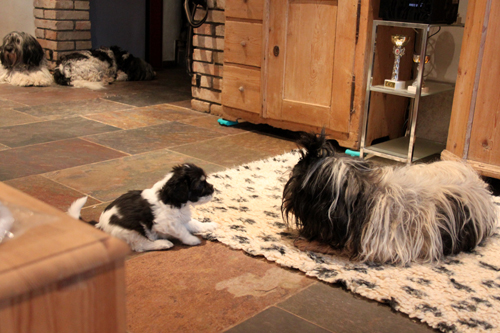Online research has indicated that Vitamin C for dogs is a relatively new treatment for many degenerative joint disorders.Generally, dogs with joint problems need more Vitamin C than what their bodies produce naturally. Prior to supplementing your PON's diet with Vitamin C, it is beneficial to understand what it is and the ways it can help your PON's health issues.
Vitamin C is a nutrient which is found in many fruits and vegetables. Humans need to supplement their Vitamin C, but dogsí bodies make enough of it on their own to meet their needs. Because dogs can produce it without supplementation, most dog foods and treats do not contain significant amounts of Vitamin C.
If you offer
your PON apples, leave the skin on to keep
it's fiber. Do not allow your PON to eat the core,
because apple seeds contain cyanide. If you need
some help convincing your PON to eat apples, try
dipping them in peanut butter. The peanut butter
provides healthy protein, vitamins and other
nutrients.
Generally dogs enjoy
sliced, dehydrated sweet potatoes. There are many
sweet potato treats on the market which are
convenient. Sweet potatoes can also be baked and
integrated into your PON's diet.
Green beans can be
added to your PON's daily diet.Many dogs will also
eat frozen green beans directly from the freezer.
The vitamins and nutrients found in green beans are
often leached out during the canning process,
therefore using fresh or frozen beans is best.
The benefits of vitamin C
If your PON doesn't have joint or other health issues, there may be no need to supplement with Vitamin C. Most owners consider supplementing Vitamin C in their PON's diet to alleviate symptoms from chronic conditions. Adding Vitamin C as a preventative may be more helpful than waiting until symptoms occur. Generally,
